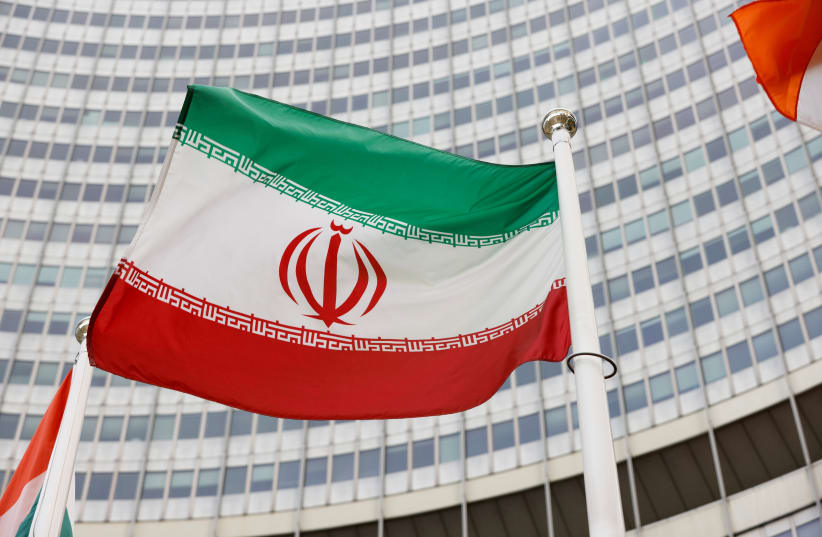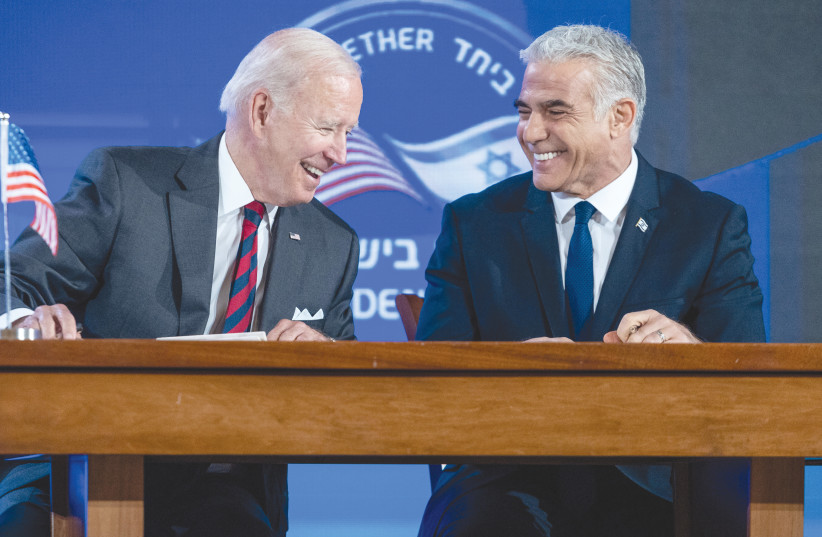During a press conference on Wednesday, Iranian Foreign Ministry Spokesman Naser Kanani dusted off an old lie to which the regime in Tehran regularly resorts when pretending to have peaceful aims for its nuclear program.
“It seems that there has been no change in the view and position of the Islamic Republic.”
Naser Kanani
“In regard to the topic of weapons of mass destruction, we have the fatwa [religious decree],” he said, referring to the regime’s repeated claim over the years that such lethal arms are prohibited by Islamic law and Iran’s highest Islamic authority, Supreme Leader Ayatollah Ali Khamenei.
“It seems that there has been no change in the view and position of the Islamic Republic,” he told an Al Jazeera reporter who asked him about a comment on Sunday by Iranian Strategic Council on Foreign Relations President Kamal Kharrazi.
“In a few days we were able to enrich uranium up to 60% and we can easily produce 90% enriched uranium... Iran has the technical means to produce a nuclear bomb,” Kharrazi had said.
Kharrazi, a close adviser to Khamenei, made the veiled threat on the heels of US President Joe Biden’s four-day trip to the Middle East last week – when he not only reiterated his vow to prevent Iran from acquiring a nuclear weapon but signed a joint pledge to that effect with Israeli Prime Minister Yair Lapid.
A clear warning
Though Kharrazi added the caveat that “there has been no decision by Iran to build one,” the statement clearly constituted a warning. It also hinted at leverage to wave in the face of the P5+1 countries begging the powers-that-be in Tehran to resume the negotiations, stalled since March, over a return to the Joint Comprehensive Plan of Action (JCPOA), the 2015 nuclear deal from which former president Donald Trump withdrew in 2018.
WHETHER KHARRAZI’S remarks slipped out without preapproval by Khamenei is anyone’s guess. But they warrant being taken more seriously than the ridiculous assertion that Iran is enriching uranium solely for civilian energy purposes.
Furthermore, Kanani’s poor excuse for a retraction doesn’t come close to an actual denial. The only truth he uttered was that there was “no change” in Iran’s nuclear stance. The bit about the Islamic ban on nuclear weapons, on the other hand, was a rehashed myth.
This is par for Iranian diplomatic double-speak, a language that the mullah-led regime’s representatives use with total fluency when addressing the West. Professing to adhere to an anti-nuke fatwa while boasting about successful ballistic-missile tests and high-level centrifuge activity is a prime example.
Iranian Intelligence Minister Mahmoud Alavi performed this very type of rhetorical trick last year.
“The Supreme Leader has explicitly said in his fatwa that nuclear weapons are against sharia law and the Islamic Republic sees them as religiously forbidden and does not pursue them,” he told Iranian state TV in February 2021. “But a cornered cat may behave differently from when the cat is free. And if they [Western states] push Iran in that direction, then it’s no longer Iran’s fault.”
He made it sound like a pretty flexible fatwa, as though violating it isn’t so problematic. Herein lies the rub, however. The fatwa in question, which Iran yammered about for years until supposedly publishing its text in 2010, is a hoax.
The propaganda about it was used by Iranian figures as a tool to prove to the administration of then-US president and JCPOA architect Barack Obama that Tehran’s intentions were honorable. It was thus music to Washington’s ears, and nobody at the White House or State Department bothered to find out whether or not it was true.
NOT SO the Middle East Media Research Institute (MEMRI), which began investigating the matter in 2012 and has produced extensive bodies of work on it since then. According to MEMRI, Khamenei never issued a jurisprudence ruling on nuclear weapons and the text that those who either assert or believe otherwise are referring to certain passages in sermons he delivered.
None of this would be relevant to anyone but blind followers of Khamenei if it weren’t constantly raised in the context of nuclear negotiations. Ironically, at this stage, even delusional American diplomats appear to have stopped grasping at that particular straw to keep their fantasies about the JCPOA flowing. All they say now is that a return to the agreement will enable them to better monitor Iran’s nuclear activities.
Naturally, this hasn’t kept Iranian officials from invoking the phony fatwa every time one or another of them brags about Tehran’s military prowess. It’s their default maneuver and one that media outlets can’t resist highlighting.
It’s silly, really, since those who refer to the Islamic decree always say in the same breath that it will be moot the moment that Iran decides to violate it. This is precisely what former Iranian deputy foreign minister Mohammad-Javad Larijani did on Sunday in an interview on Iranian TV.
“During Mr. Biden’s visit to the Zionist regime, they signed some document and took an oath together that they would not allow Iran to obtain nuclear weapons,” Larijani said, in reference to the “Jerusalem US-Israel Strategic Partnership Joint Declaration” that the American president signed on July 14 with the Israeli premier.
He then proceeded to mention and promptly dismiss Khamenei’s ostensible decree. “Naturally, according to the [supreme] leader’s fatwa, we are religiously forbidden from obtaining weapons of mass destruction, and this includes nuclear weapons,” he stated. “Nevertheless, if we ever want to do this, nobody will be able to stop us, of course. They themselves know this.”
He got that right about Israel, at least. America and Europe may not be so certain on that score.
HE WENT on to insist that Iran’s nuclear capabilities “are the pride of the Islamic world,” adding, “it is a very deeply rooted matter.” He must have forgotten about the Muslim countries engaged in a process of normalization with Israel in order to confront what they consider a source of fear, not “pride.”
Biden nevertheless is adamant in his faith in the JCPOA as some kind of a deterrent. When asked by Israeli Channel 12’s Yonit Levi – during an interview she conducted with him at the White House on the eve of his Mideast sojourn – whether his intention to do everything to prevent Iran from obtaining nuclear weapons includes the use of force, he sheepishly replied, “If that was a last resort, yes.”
His whisper wasn’t terribly convincing, to put it mildly. Nor does his desperation to forge a deal with Tehran make any sense – unless his administration’s real aim is to let the clock run out and simply accept a nuclear Iran as inevitable.
The revelations about the way in which the regime has been hoodwinking the West from the get-go were sufficient cause for Trump to rip up the JCPOA. As MEMRI reported less than three months ago, former Iranian parliament (Majlis) member Ali Motahari said in an April 24 TV interview: “When we began our nuclear activity, our goal was indeed to build a bomb. There is no need to beat around the bush… we wanted to build it as a means of intimidation.”
To clarify, he explained, “The Koranic verse says: ‘Strike fear in the hearts of the enemy of Allah.’”
So much for peaceful fatwas, real or fabricated.

